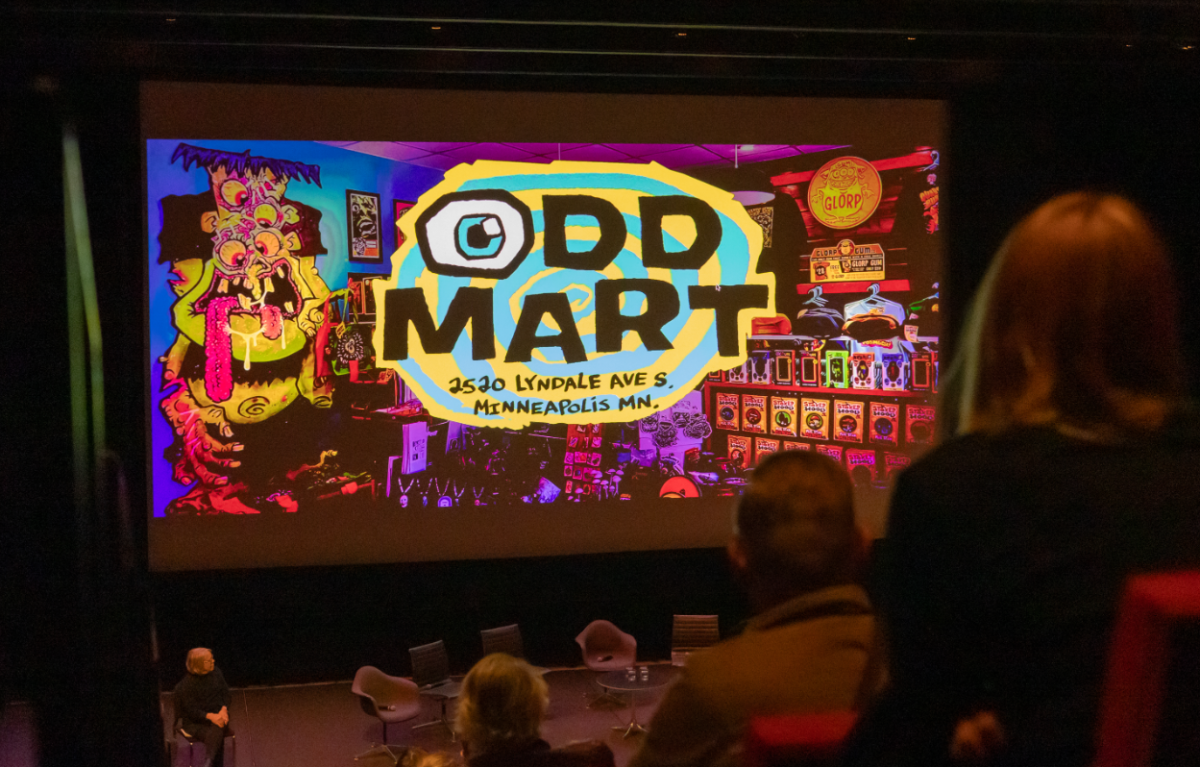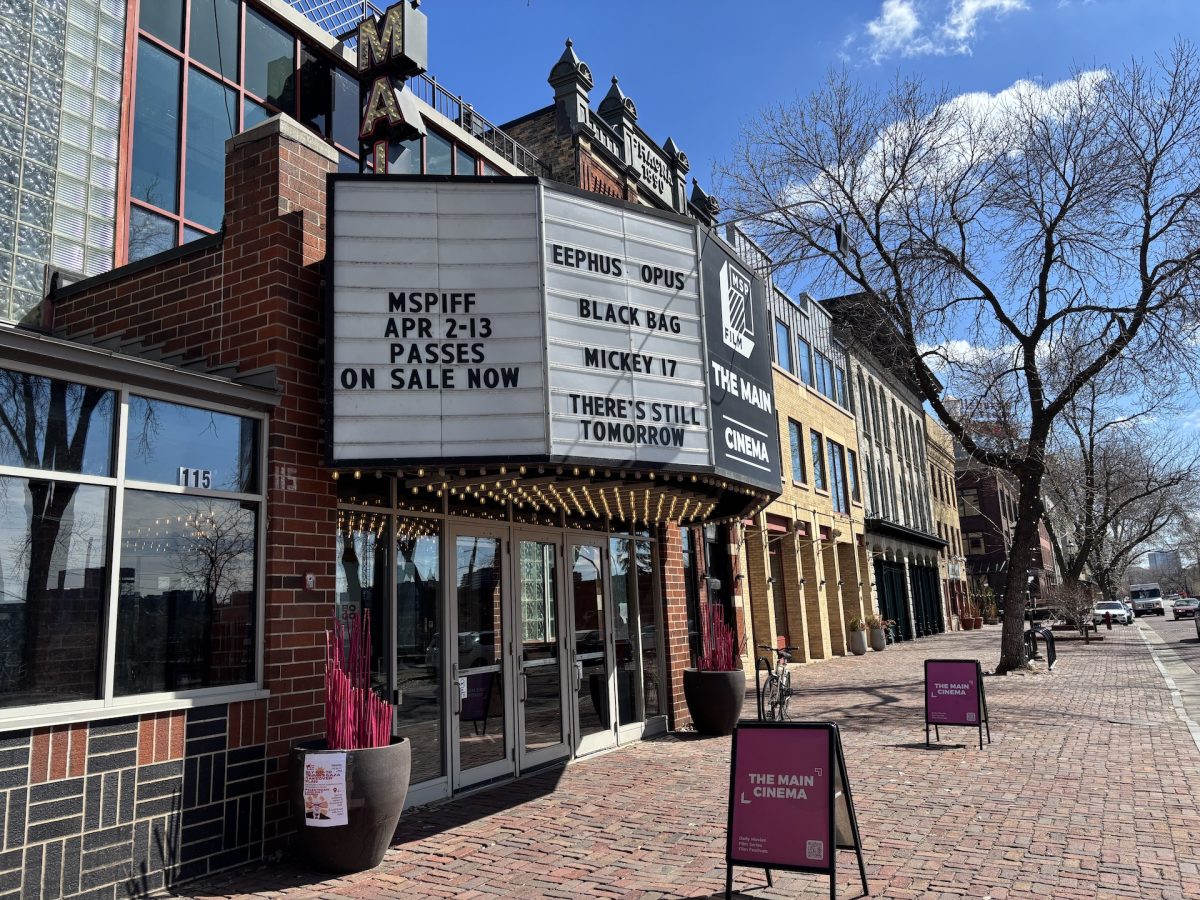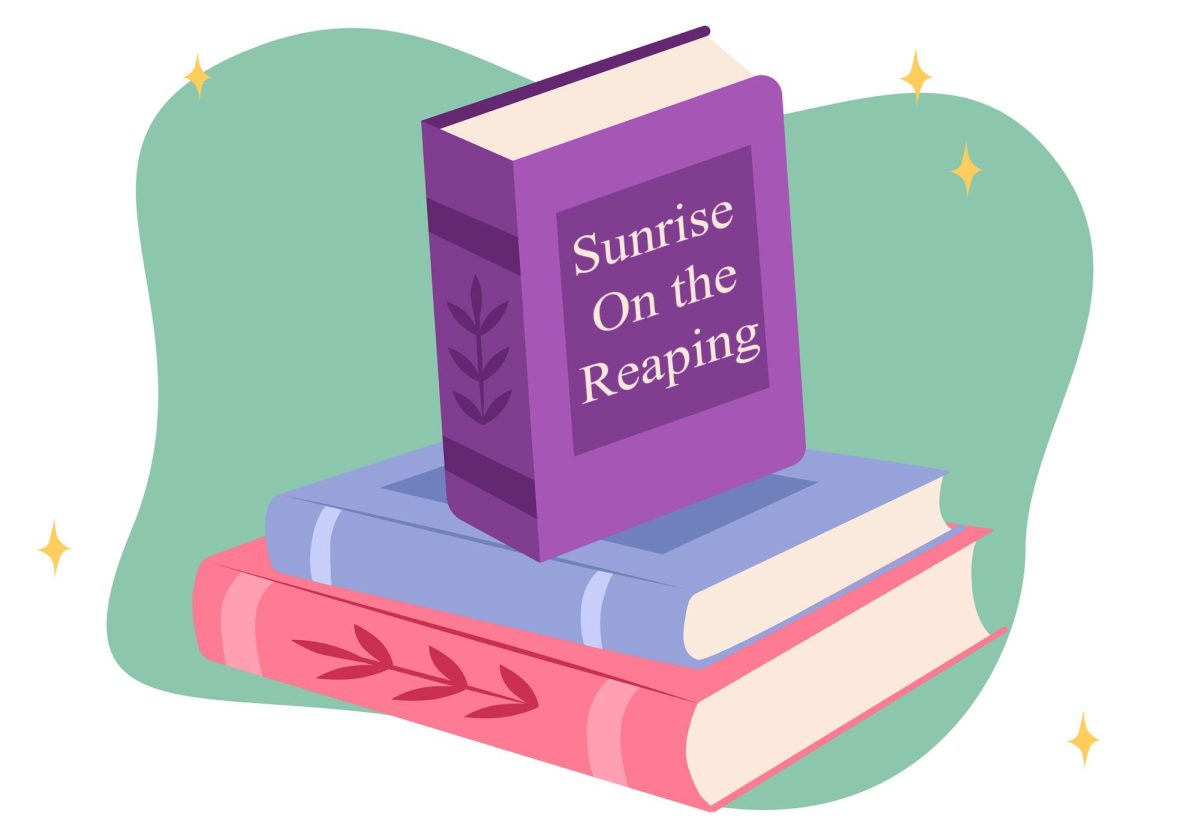Teens with dyed black hair, dark eyeliner and spike-studded belts are not at a My Chemical Romance show. No, they are pumping their fists and bobbing their heads to hip-hop. And not the Jay-Z, Linkin Park collaboration either. They are at an Atmosphere show.
The local group Atmosphere went from underground hip-hop shows at the 7th Street Entry to playing in front of thousands at Warped Tour. Along the way, its fan base went from indie backpackers to emo-punk-lovin’ high- schoolers.
With each record, Atmosphere has gained more attention and record sales. The new album, “You Can’t Imagine How Much Fun We’re Having,” debuted at No. 1 on Billboard’s independent charts and at No. 66 overall. They’ve sold out three nights in a row at First Avenue this week.
But can this really be a sign that indie hip-hop is breaking into the mainstream? Or is Atmosphere’s popularity an extension of emo-punk’s rise with other Warped Tour bands like Yellow Card, Thursday and Coheed and Cambria?
“Four years ago, it was weird,” front-man Sean Daley, better known as Slug, said about being embraced by an audience outside the hip-hop scene. “But that (feeling) only lasted six months.”
Slug said he realized Atmosphere’s image – whether or not they were staying “real” – was less important than spreading Atmosphere’s music.
“We all love a clown, but we don’t want to see you climb up above the underground,” Slug raps on the song “Watch Out.”
“Didn’t your punk, your rock, your hip-hop teach you to try and get people to see what you see?” he said. “Quit preaching to the choir so you can actually teach new people and share information.”
Slug seems satisfied to be punk kids’ “doorway drug” to hip-hop. The question is: Why Atmosphere? What made the group’s beats and rhymes attractive to this audience?
Producer Ant’s beats are hardly hard-core. Ant digs through musty record bins to revive discarded soul and spreads his samples over smooth bass lines and a high snare drum. On “You Can’t Imagine,” Ant uses gorgeous gospel tunes as backdrops – a far cry from whiney screams over loud guitars.
Slug’s heart-on-his-hoodie-sleeve lyrics must be the culprit. Slug captures the spiral of heartache mixed with happy hour and homesickness mixed with restlessness. It is one part clever rhymes, two parts scribbled diary entry.
The song “Angelface” on the new record turns Chicago into a noir film as Slug sits outside a café in the rain watching an ex-lover smoke a soggy cigarette. He rhymes, “Just trying to find a lost soul to save and I’m a lost soul trying to find a road that’s paved.”
Slug (like many emo boys) is a storm chaser. For him, a sunny day may be pretty, but he finds the real beauty in danger and destruction. Since the 2000 album “Lucy Ford” – an epic surrounding a mysterious femme-fetal named Lucy – Slug has been fascinated by girls willing to break his heart.
On the song “Bam,” Slug raps, “Girlfriend I need your help cuz the head on my shoulders won’t fuck itself.”
Women have always been the center of not just Atmosphere’s songs, but Slug’s problems as well. It’s part of the reason he attracts so many female fans. He plays the role of a wounded puppy, but it is unclear if his feelings are genuine or if he uses his bleeding heart find another bosom on which to lay his head.
The 2002 Atmosphere album “God Loves Ugly” has an interlude where Slug tells a girl “Bands like us don’t get groupies.” The girl’s reaction is surprise and a bit of pity. Although the sound bite ends there, you get the feeling the girl took it upon herself to be Atmosphere’s “first” groupie.
This is contradicted by Slug’s numerous references to the amount of love his female fans give. “Hockey Hair” on the new album has the line, “Every pretty face acting like they know me, same story take photos and blow me like sucking on my pony is some kind of trophy.”
Slug admitted he has made a career out of “writing songs about other people’s girlfriends.” So maybe it is unjustified to put all the criticism on Slug for stories that aren’t his. Plus, many of his lyrics are meant to be funny and sarcastic.
It can be hard to tell what is honest and what is a joke. Slug is full of contradictions.
In a Warped Tour diary Slug wrote for Spin magazine last summer he said, “Some girls apparently kept flashing me their drunk, 20-year-old breasts … I have a tendency to stop sets to lecture women when they do that.” (Thanks for the lesson on feminism, Slug!)
He goes on to write, “I do not wanna be one of those bands that attracts that type of attention.”
Yet the last album, “Seven’s Travels,” featured a song titled “Suicidegirls.” And now, Atmosphere has an unreleased track on the Suicide Girls compilation CD. Suicide Girls is a pornography Web site that features tattooed and pierced girls – pretty much the stereotypical “look” of a girl at Warped Tour.
So if Slug really doesn’t want to attract shirt-lifting females at shows, he’s sending the wrong idea by associating Atmosphere with Suicide Girls.
Still, Slug’s lyrics are hard to complain about when demeaning songs like “Wait (The Whisper Song)” play on the radio. But sometimes it seems indie rappers get away with misogyny because their brand of misogyny “isn’t as bad” as commercial rap.
But, “You Can’t Imagine” does focus less on evil temptresses, and Slug even states on “Say Hey There,” “I’m returning this broken hearts club membership.”
It’s not a completely new Slug, but unlike past albums, it’s a Slug we can believe when he says he wants to change.
The most compelling moments on “You Can’t Imagine” come near the end with Slug confessing, “Don’t even know if I can write this song.”
The song, “That Night,” is about the rape and murder of a fan at an Atmosphere show years ago. “That night we lost a supporter/ that night somebody lost a daughter,” Slug raps.
Earlier in the record, on a sprightlier tune, Slug commands, “Stand up alive cuz the music hasn’t died yet.” But on “That Night,” he says “The music died that night in Albuquerque.” This time, the contradiction makes the album complicated and powerful.
Ultimately Atmosphere is different from the Ying Yang Twins and commercial hip-hop because Slug exposes his faults and his turmoil. Slug may not always be right or politically correct, and his rhymes sometimes come off as pretty weak. But when Atmosphere clicks, it’s not just good emo-punk, or good indie hip-hop. It’s good music. And it proves why Atmosphere has been able to stretch across genres.
It’s like Slug said: “Everyone has to love and hate to see where they’re going.”







